درسنامه واژگان
آموزش رایگان زبان انگلیسی > دوره: دروس پایهی انگلیسی بدون تلاش / فصل: دخترک زیرک / درس: درسنامه واژگانسرفصل های مهم
درسنامه واژگان
توضیح مختصر
در این درس آقای ای جی هوگ لغات مهم استفادهشده در درسنامهی اصلی را برای شما بهطور مفصل توضیح میدهد.
- سطح ساده
دانلود اپلیکیشن «زبانشناس»
فایل صوتی
متن انگلیسی درس
Tricky Girl- Vocabulary Lesson
Welcome to the vocabulary lesson for “A kiss”.
OK, Let’s start…
Carlos buys a new car. It’s very expensive. It’s a huge, blue, fast car.
“Huge”, huge means very very big, super big. So, it’s huge, huge. Huge means very very big, very very very big. It’s a very very very big car. It’s a huge car. OK.
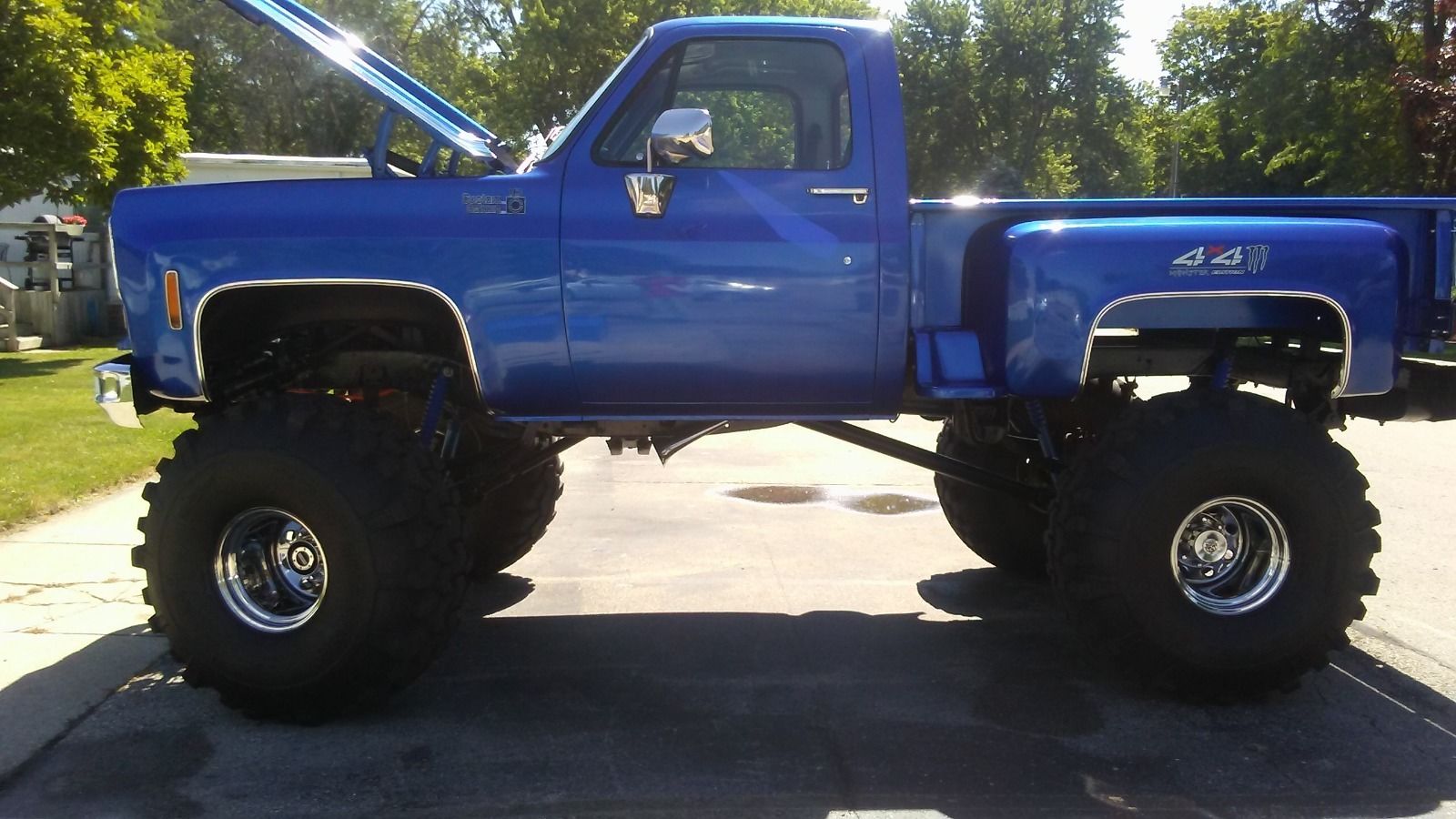
While driving down the street, he sees a girl. So “ While” means at the same time. Same time, driving down the street, seeing the girl – same time. They happen at the same time. So while driving down the street, Carlos sees a girl on a bicycle.
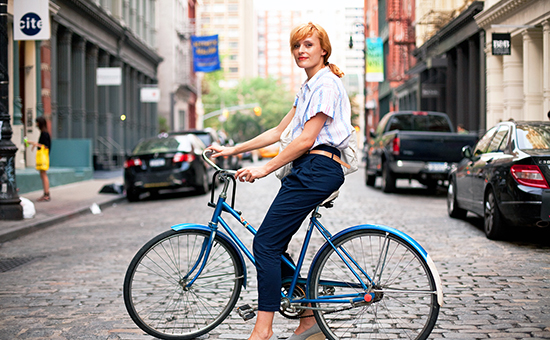
OK, he yells to her: What’s up? “What’s up” is a common way to say hello. We say “ what’s up, what’s up”. It’s very popular to say: what’s up? So instead of saying “ hello” , if you have a friend, you see your friend, someone you know, you say “what’s up?” When I see my friends, sometimes I say : what’s up. It means “hello” or ”How are you” – what’s up… what’s up?
So Carlos says “what’s up” to the girl but she ignores him.
To ignore means you don’t listen to someone and you don’t pay attention to someone. You don’t look at them. You don’t listen to them. That’s ignore.

Say “he ignored her“ means he did not listen to her. He did not look at her. He ignored her or ignores (present : ignores). She ignores Carlos. She does not look at Carlos. She does not listen to Carlos. She ignores him.
And then Carlos yells “How’s it going?” How’s it going…How’s it going means How are you. How are you. We often say “how’s it going or how’s it goin. The last sound “g” sometimes “g”, going, going. Sometime no “g” sound: goin… goin… goin. It’s the same meaning, the same, just different pronunciation. So “How’s it going” means “How are you”.
So he yells to her “how’s it going”. She keeps walking and ignores him. Keeps, here “keeps” means continues. Keep has another meaning. Keep can mean something else. But here, in this article: keeps means continues. continues. She continues walking. She keeps walking. OK, keeps and continues. So she keeps walking and she ignores him.
He yells “hey, why won’t you talk to me?”
OK, won’t means will not. “Why will you not talk to me” is what he saying but in normal speech, normal speaking, we don’t say “will not”. We usually say “won’t”. “I won’t go to the store” means I will not go to the store (and it’s future, right future). So he asks her “why won’t you talk to me?” – Why will you not talk to me?
And he says “I want to go to dinner with you”. OK. he wants a date. He wants to go to a restaurant with her. He says: “I’ll take you to an expensive restaurant, not a cheap restaurant, right?“ He wants to take her to an expensive restaurant.

Finally the girl turns and looks at him and she says: “I don’t want to go to dinner.“ But she says: “if you give me your car, I will give you a surprise.“ Oh, give me your car and I will give you a surprise. So “if you give me your car” – so he has to do that first, the first action. And then, if that happens, then she will give him a surprise.
Carlos says: OK because she is beautiful. He jumps out of the car. He gives her the keys and he says: “here are the keys“. OK, here are the keys. We usually say : here… here is the book, here are the keys. We say: “here is“ or “here are“ when we give something to someone, here is the key. here is the money, here are the keys…
OK, so Carlos gives the keys to the beautiful blond girl. The beautiful blond girl takes the keys and then kisses Carlos on the cheek. Cheek is the side of your face, right?
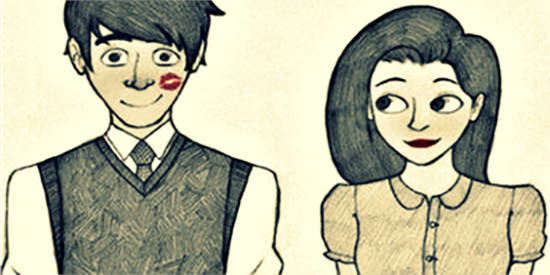
So she kisses Carlos on the side of his face on the cheek… OK, just on the cheek.
Then she jumps into the car and drives away… Carlos stands on the sidewalk. Sidewalk is next to the street, right? It’s where people walk. So the street, the street is for cars, cars and buses only and the sidewalk next to the street, right? Sidewalk where people walk. Side of the street.
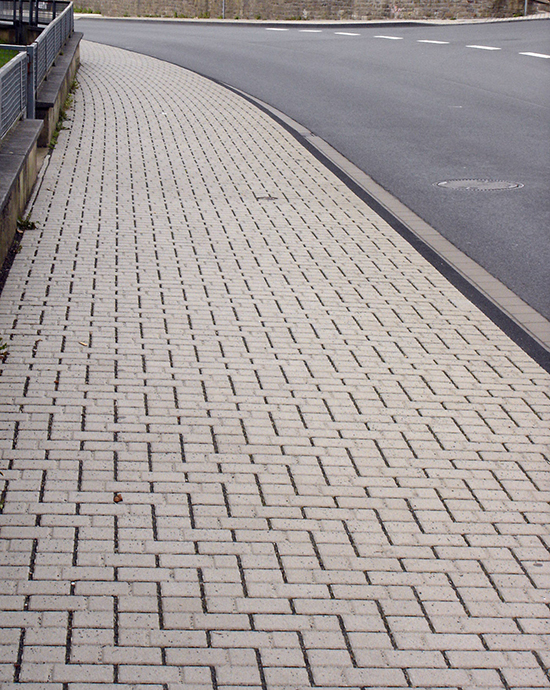
OK, so he stands on the sidewalk. And now he has no car and no girl. He says: “that’s it, just a kiss on the cheek“. OK, that’s it…. THAT’S IT… That’s it means: there is no more.
There is nothing more. Nothing more is coming, nothing more to get, nothing more to do. So basically means finished. So he says “that’s it“ , it means he only got a kiss, he will not get more from her, he will not get something else, only a kiss. That’s it . sometimes we say: that’s all… that’s all – same meaning. that’s all or that’s it means totally finished.
In a restaurant you will use this. When you finish eating, the waiter or the waitress will come and ask you: Do you want something else? Do you want more food. Do you want more drinks? OK. If you’re finished, you say: that’s it…that’s it means we are finished eating. We don’t want more food. We don’t want more drinks. Right? We are finished. Bring the check. Bring the bill. So at the end, when you finish eating in the restaurant, tell the waiter: that’s it, right, means you’re finished.
OK and then, he says: “that’s it, just a kiss on the cheek“. Then he gets on her bike - He gets on the girl’s bicycle. Bicycle or bike are the same. and he rides home. Poor Carlos.
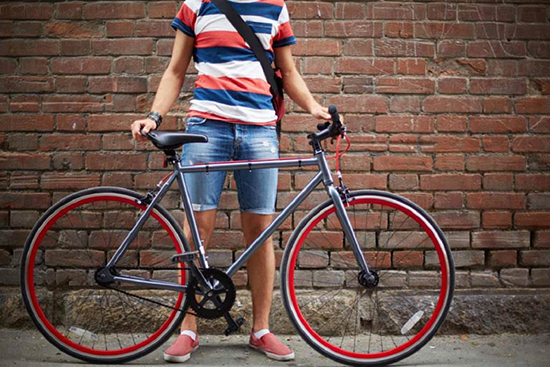
OK, that’s it, that’s it. The lesson is finished. The vocabulary lesson is finished. That’s it .
ترجمهی درس
دختر حیلهگر - درس واژگان
به درس واژگان برای « یک بوسه» خوش آمدید.
خب، بیاید شروع کنیم…
کارلوس ماشین جدیدی میخرد. بسیار گران است. یک ماشین عظیم، آبی و سریع است.
«عظیم»، عظیم به معنی خیلی خیلی بزرگ، فوقالعاده بزرگ است. پس، عظیم است، عظیم. عظیم به معنی خیلی خیلی بزرگ است، خیلی خیلی خیلی بزرگ. این یک ماشین خیلی خیلی خیلی بزرگ است. این یک ماشین عظیم است. خب.

او در حالیکه به سمت پایین خیابان رانندگی میکند، دختری را میبیند. پس «در حالی» به معنای همزمان است. همزمان، رانندگی به سمت پایین خیابان، دیدن دختر - در همان زمان. آنها در همان زمان اتفاق میافتند. پس در حالیکه به سمت پایین خیابان رانندگی میکند، کارلوس دختری را با دوچرخه میبیند.

خب، او برایش فریاد میزند: چه خبر؟ «چه خبر» روش رایجی برای سلام کردن است. ما میگوییم: «چه خبر، چه خبر». گفتن آن بسیار محبوب است: چه خبر؟ پس بهجای گفتن «سلام»، اگر دوستی دارید، دوستتان را میبینید، شخصی را که میشناسید، میگویید «چه خبر؟» وقتی دوستم را میبینم ، گاهی میگویم: چه خبر. این به معنای «سلام» یا«حالت چطوره» - چه خبر… چه خبر؟
پس کارلوس به دختر میگوید «چه خبر» اما دختر او را نادیده میگیرد.
نادیده گرفتن یعنی به کسی گوش نمیکنید و به کسی توجهی نمیکنید. شما به آنها نگاه نمیکنید. شما به آنها گوش نمیدهید. این نادیده گرفتن است.

بگو «او را نادیده گرفت» یعنی به او گوش نداد. نگاهش نکرد. او آن را نادیده گرفت یا ندید گرفت (زمان حال: نادیده میگیرد). او کارلوس را نادیده میگیرد. او به کارلوس نگاه نمیکند. او به کارلوس گوش نمیدهد. او کارلوس را نادیده میگیرد.
و بعد کارلوس فریاد میزند: «چطور میگذره؟» چطور میگذرد… چطور میگذره یعنی حالت چطوره. چطوری. ما اغلب میگوییم «چطور میگذرد یا چطور میگذره». آخرین صدای “گ” گاهی اوقات “g”، میگذرد، میگذرد. گاهی اوقات “g”صدا نمیدهد: goin … goin … goin. این همان معنی است، همان، فقط تلفظ متفاوت است. پس «چطور میگذره» یعنی «حالت چطوره».
پس کارلوس فریاد میزند «چطوری میگذره». دختر همچنان راه میرود و او را نادیده میگیرد. همچنان، در اینجا «نگه میدارد» یعنی ادامه میدهد. نگه داشتن معنای دیگری دارد. نگه داشتن میتواند به معنای چیز دیگری باشد. اما در اینجا، در این مقاله: نگه داشتن به معنی ادامه میدهد است. ادامه مییابد. او به راه رفتن ادامه میدهد. او همچنان راه میرود. خب، همچنان و ادامه میدهد. پس او همچنان راه میرود و او را نادیده میگیرد.
او فریاد میزند: «هی، چرا با من حرف نمیزنی؟”
خب، یعنی نخواهی (شکل مخفف و کامل فعل کمکی آینده). «چرا با من صحبت نمیکنی» چیزی است که او میگوید، اما در گفتار عادی، صحبت معمولی، ما نمیگوییم «نخواهی». ما معمولاً میگوییم «نمیزنی». «من به فروشگاه نمیروم» یعنی من به فروشگاه نخواهم رفت (و این آینده است، درسته آینده است). پس او از دختر میپرسد «چرا با من حرف نمیزنی؟»- چرا با من صحبت نخواهی کرد؟
و او میگوید: «من میخوام با تو به شام برم». خب. او یک قرار میخواهد. او میخواهد با او به رستوران برود. او میگوید: «من تو را به رستوران گران میبرم، نه رستوران ارزان، درسته؟» میخواهد او را به یک رستوران گرانقیمت ببرد.

بالاخره دختر میچرخد و به او نگاه میکند و میگوید: «نمیخوام به شام برم.» اما میگوید: «اگر ماشینت را به من بدی، من غافلگیرت میکنم». اوه ماشینت را به من بده و من غافلگیرت میکنم. پس «اگر ماشینت را به من بدی» - پس او باید اول آن را انجام دهد، اول آن کار. و بعد، اگر این اتفاق بیفتد، او را غافلگیر خواهد کرد.
کارلوس میگوید: خب چون او زیباست. او از ماشین بیرون میپرد. کارلوس سوییچهایش را به او میدهد و میگوید: «این هم سوییچها». خب، اینهم سوییچها هستند. ما معمولاً میگوییم: اینجا… کتاب اینجاست، سوییچها اینجا هستند. ما میگوییم: «اینجاست» یا «اینجا هستند» وقتی که چیزی را به کسی میدهیم، کلید اینجاست. پول اینجاست، سوییچها اینجا هستند…
خب، پس کارلوس سوییچها را به دختر بلوند زیبا میدهد. بلوند زیبا کلیدها را میگیرد و سپس روی گونهی کارلوس یک بوسه میزند. گونه سمتی از صورت شماست، درسته؟

پس او یک سمت صورت کارلوس را میبوسد… خب، فقط روی گونه.
سپس او به داخل میپرد و دور میشود… کارلوس روی پیادهرو ایستاده است. پیادهرو کنار خیابان، درسته؟ جایی که مردم قدم میزنند. پس خیابان، خیابان فقط برای اتومبیلهاست، فقط ماشینها و اتوبوسها و پیادهرو کنار خیابان است، درسته؟ پیادهرو که مردم در آن قدم میزنند. کنار خیابان.

خب، پس او روی پیادهرو ایستاده است. و حالا او نه ماشین را دارد و نه دختر را. او میگوید: «همین، فقط بوسه روی گونه». خب، همین…. همین… این یعنی: چیز دیگری نیست.
چیز بیشتری نیست. چیز بیشتری نمیآید، چیز بیشتری برای گرفتن نیست، کار بیشتری برای انجام دادن نیست. پس اساساً یعنی تمام شده است. پس او میگوید «همین»، این یعنی او فقط بوسهای گرفت، او چیز بیشتری از او بهدست نمیآورد، چیز دیگری را دریافت نمیکند، فقط یک بوسه. همین. بعضی اوقات میگوییم: همهش همین بود… همهش همین بود - معنی یکسان. همهش همین بود یا همین یعنی کاملاً تمام شده است.
در رستوران از این استفاده خواهید کرد. وقتی غذا را تمام کردید، پیشخدمت مرد یا پیشخدمت زن میآیند و از شما میپرسند: آیا چیز دیگری میخواهید؟ آیا غذای بیشتری میخواهید؟ نوشیدنی بیشتری میخواهید؟ خب. اگر تمام کردید، میگویید: همین… این یعنی ما غذا را تمام کردهایم. ما غذای بیشتری نمیخواهیم. ما نوشیدنی بیشتری نمیخواهیم. درسته؟ تمام کردیم. چک را بیاورید. صورتحساب را بیاورید. پس در پایان، وقتی غذا را در رستوران تمام کردید، به پیشخدمت بگویید: همین، درست است، یعنی شما تمام کردهاید.
خب و بعد، او میگوید: «همین، فقط یک بوسه روی گونه». سپس سوار دوچرخهی او میشود - او سوار دوچرخهی دختر میشود. دوچرخه یا بایک یکسان هستند. و او به سمت خانه رکاب میزند. کارلوس بیچاره.

خب، همین، همین است. درس تمام شد. درس واژگان تمام شد. همین.
